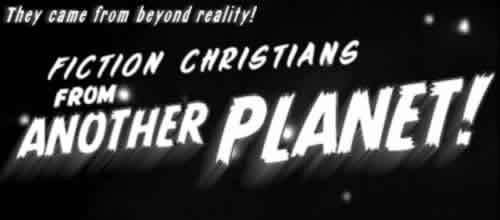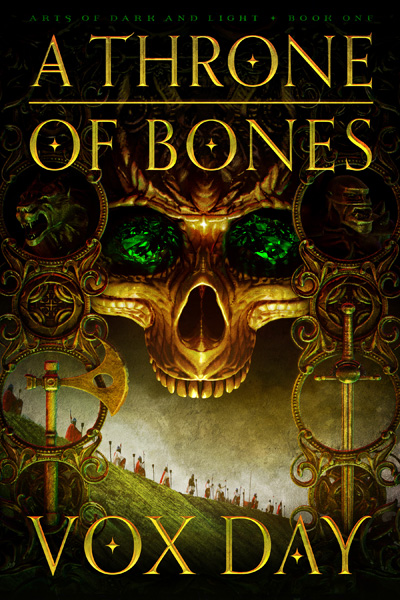A Throne of Bones epic-fantasy author Vox Day discusses how heâs moved from columns to fiction, controversial novel content, and his criticism (not imitation) of A Game of Thrones.
Interviewer E. Stephen Burnett: Some years ago I recall seeing a headshot of this bald yet young columnist on the WorldNetDaily.com website. His first name was Latin for âvoiceâ; he wrote as a âChristian libertarian.â Twelve years later, Vox, youâve ended that column (but kept your blog) and say you prefer writing fiction. I canât miss a chance to ask: why did you take that transition?
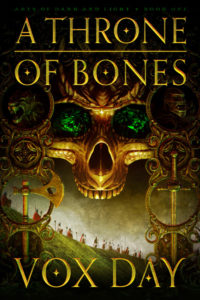
Click to learn more.
Vox Day: The time was right. First, Iâve lived in Europe a long time and Iâve been getting less and less interested in US politics. This is not a good thing for someone writing an op/ed column that deals regularly with American politics. Second, I conducted a little experiment last fall. I wrote a column I thought was really important on a book that has the potential to completely change how we think about economics. The following week, I wrote the dumbest, most simplistic column I could imagine. When the latter received ten times more traffic, comments, and Facebook likes than the former, I realized that I really needed to do something else. After A Throne of Bones came out in December 2012, I decided that Iâd rather put more time into working on the next book in the series than spend it writing about the next Republican surrender on the debt ceiling.
ESB: On Sunday you wrote, âI could not care less about the so-called âChristianâ market. ⊠While I am an evangelical Christian, I am not of the evangelical Christian culture.â Whatâs your story growing up â perhaps evangelical home, or adult convert? If the former, what could have kept you out of pervasive âevangelical Christian cultureâ? If the latter, what do you say makes you âevangelicalâ (a folk not yet well-known for their love of epic fantasy)?
Vox Day: I was raised in an evangelical Christian home, attended an evangelical church, and graduated from a private Christian academy. The experience was enough to put me off what passes for evangelical Christian culture for life and even drove me away from Jesus Christ for about ten years. I eventually came to the realization that one canât reasonably judge the ism by the ists, particularly when the specific ism predicts and describes the fallen nature and inevitable failures of the ists. Seriously, though, if your kid likes AC/DC and you buy him a Sandi Patty album as a putative alternative, you may as well teach him to drink blood and sacrifice goats.
So, I was an adult convert in my late twenties. Before then, Iâd been signed to the record label and music publisher that was the home of Ministry, Nine Inch Nails, and My Life with the Thrill Kill Kult and Iâd been working in the computer game business for five years making 2.5D shooters. If Iâm going to be in, but not of, any world, I am much more comfortable being in that particular one than in the world of evangelical culture. I would rather debate theological matters with an angry, Richard Dawkins-brandishing atheist than listen to a fellow Christian ramble on about how he personally approves of this or that Bible verse and âjust thinksâ the revealed wisdom of the Creator Lord of the Universe is âneatâ.
Why do I describe myself as that which still occasionally gives me the willies? Because, to most people of my acquaintance, âevangelical Christianâ doesnât have a particular doctrinal significance, it simply means someone who genuinely believes in the tenets of the Christian faith and attempts to live by them as opposed to being a cultural Christian in the broad civilizational sense. Perhaps itâs not the right term in the American sense, but thatâs the way that I usually hear the term being used in Western Europe.
ESB: Youâve written novels before, and your first with Marcher Lord Press was Summa Elvetica: A Casuistry of the Elvish Controversy, one of the first novels on which this speculative publisher took a chance. Whatâs that story, and the story behind it?
Vox Day: Jeff is an extraordinary risk-taker. Itâs one of the things I like and admire about him. He contacted me when he launched Marcher Lord and said that he was very interested in publishing my fiction. I wasnât interested at first because it was quasi-CBA and small press; I was publishing with Pocket Books at the time. However, I did have this insanely ambitious idea for bringing religion back into high fantasy, inspired by an essay Iâd written for Ben Bellaâs Revisiting Narnia anthology, entitled âCS Lewis and the Problem of Religion in Science Fiction and Fantasy.â I knew no one else would ever even consider publishing it, so I said I would write it if it was of any interest to him. He said yes, so I got to it.
Unfortunately, I completely failed. Originally, the plan was for this massive structural subtext in which each fantasy race represented a different medieval philosophical school, but I just couldnât pull it off. The intellectual scope was far too grand; it took me a year just to get a decent grasp of Thomas Aquinas via the Summa Theologica. So, the book went from being philosophically vast to atomic; the novel is essentially nothing more than a single Aquinas-style argument concerning whether elves have souls naturally united to them or not. Itâs still ambitious in its own way; structurally speaking, it could reasonably be argued that it is one of the most conceptually original novels published in SF/F for decades. But itâs a very small fragment of what it was first conceived to be and even that fragment is clumsily executed.
Still, most of the people who read it rather liked it as a modestly intellectual high fantasy tale. And it very much amused me that the only professional reviewer of the novel was clearly under the impression that the philosophical argument was one from the real Summa. At least I got that bit right.
ESB: Whatâs different between Summa Elvetica and your newest novel, A Throne of Bones?
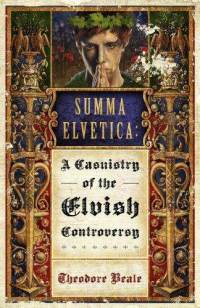 Vox Day: About 650 pages, for one thing. Summa Elvetica could be considered a long chapter in the life of one of the perspective characters in A Throne of Bones, the military tribune Marcus Valerius Clericus. In fact, it explains his agnomen, Clericus, which means âpriestâ. But the real difference is that I learned to stop being clever and to focus on the story instead of the subtext. The Wrath of Angels, for example, is a subtextual spin on the single European currency and the failure of the European elite to replace the pound sterling, but no one has ever picked up on that. Iâve found that the depth of the subtext tends to detract from the natural flow of the story, at least when written by an author of my admittedly limited talents.
Vox Day: About 650 pages, for one thing. Summa Elvetica could be considered a long chapter in the life of one of the perspective characters in A Throne of Bones, the military tribune Marcus Valerius Clericus. In fact, it explains his agnomen, Clericus, which means âpriestâ. But the real difference is that I learned to stop being clever and to focus on the story instead of the subtext. The Wrath of Angels, for example, is a subtextual spin on the single European currency and the failure of the European elite to replace the pound sterling, but no one has ever picked up on that. Iâve found that the depth of the subtext tends to detract from the natural flow of the story, at least when written by an author of my admittedly limited talents.
After A Dance with Dragons came out, I was talking with a friend who was as disgusted with that epic disappointment as I was, and he was lamenting that with Martin having gone south, there wasnât anything worth reading in that genre. I always wanted to write a fat fantasy and figured I couldnât do all that much worse than Martin had, so I decided I would return to the world of Summa Elvetica. This time, however, I would throw out the intellectual fireworks that no one seemed to notice or care about anyhow and focus solely on writing a good story with strong, memorable characters. I assumed Iâd have to self-publish it, but I needed to get Marcher Lordâs permission first since it could be considered a sequel of sorts even though there is absolutely no need to read the earlier novel. All I was looking for was a release and I was shocked when Jeff said he wanted to publish it, even after I warned him that I intended for it to be around 300,000 words. He didnât blink, not then, and not later when I turned in the 297,500-word manuscript.
Despite being longer, Throne was much easier to write than Summa. It was exactly 494 days from that first conversation to publication on December 1, 2012. I figured that taking six years to write Dragons hadnât done Martin any good, so what was the point of dragging the process out? Also, if it was going to be a spectacular failure, the less time I wasted on it, the better.
ESB: Now for the controversial parts. Last week, your editor/publisher Jeff Gerke shared the story behind the novel. In part: âThe author felt very strongly that the book needed to have vulgarity (which, he informed me, is different from profanity), nudity, and even sex.â To you, how are vulgarity and profanity different? Which Scriptures have informed your views? Do you think you can write a character saying something you would try not to say?
Vox Day: The distinction between profanity and vulgarity is not original to me, anyone can look up the etymology of the words. To be profane is to attack the sacred. To be vulgar is merely to be low and common. Even the most uptight, eagle-eyed Churchian will not find any blasphemy or taking the name of our Lord and Savior in vain; such profanity wouldnât make any sense in the world of Selenoth. To me, the idea of writing a book where legionaries are anything but low and common in their speech and behavior is so ludicrous that it would be more credible to give them jet packs and laser guns than to delicately avoid showing them drinking themselves insensate at every opportunity, whoring in brothels, bitching about their officers, and jeering at those who betray a physical response to being terrified in battle.
The verses which influence me on the subject of literary language are Leviticus 19:12, Colossians 3:8, and 1 Peter 3:10. Particularly Colossians 3:8. I find it absurd and bordering on the delusional to see Christians who would never think to object to angry, malicious, and slanderous speech in fiction nevertheless try to use the Bible as a basis for objecting to vulgar language in the mouths of fictional characters. I write about life in a fallen world and I do so as honestly and accurately as I can. I believe that to do otherwise is to be deceitful.
And yes, I absolutely assert that I can write something that I would never say or even think for myself. The writer is not the character. And the writer whose characters are little more than various reflections of himself is one who lacks imagination, creativity, and basic powers of observation.
ESB: How did you approach writing a romantic, even physical scene between two married characters? Do they feel real to you? What response do you hope readers will have to this?
Vox Day: I simply approached it by imagining the perspective of a man who has been absent from his wife for six months, who has been faithful to her, and who is understandably more than a little eager to get her dress off. Did they feel real to me? Not any more than any of the other characters who were engaged in other activities such as slaughtering rabbits, writing letters, and impaling enemies on their lances. The response I hope readers will have is to grasp the depth and the nature of the love and affection between the married couple concerned, while the meta response I hope they will have is to reflect upon the difference between way sex is depicted in my work and the way it is depicted in the works of other writers of epic fantasy such as George R.R. Martin, R. Scott Bakker, and Joe Abercrombie.
ESB: When I first saw the release about A Throne of Bones, several readersâ reactions were akin to, âAw, just another evangelical-culture imitation.â But you specifically debunked that notion in your Sunday blog, especially regarding Gerkeâs statement that A Throne of Bones may be âthe Christian answer to [Game of Thrones author George R.R.] Martin.â You wrote:
And to those who will roll their eyes at the idea of “a Christian answer to George Martin” and imagine it is meant in the Stryper sense, let me hasten to disabuse you of that notion. A THRONE OF BONES is neither an homage nor an imitation, it is a challenge. It is intended as a literary rebuke.
So not âanswer toâ meaning âimitation of,â but âriposte.â How do you feel A Game of Thrones betrayed fantasy in favor of ugliness, hate, and glorification of sinful appetites?
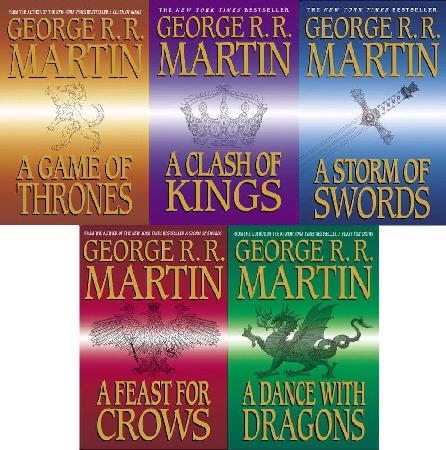
Vox Day: The idea of writing a book that is âlike X, only Christianâ is entirely repugnant to me. I did not write âa Christian novelâ, I am a Christian who wrote a novel in a specific literary tradition. I did not approach the process as a representative of modern evangelical culture, hoping to collect a few crumbs fallen from the medieval feast described in excruciatingly painstaking detail on the secular table, but as one of the legitimate heirs to the literary kingdom who is castigating the usurpers. Now, I very much enjoyed the first three books of A Song of Ice and Fire, but the idea that Martin is, or ever could be, âthe American Tolkienâ should offend anyone who loves Middle Earth. He would be more accurately described as âan anti-Tolkienâ in much the same manner that Philip Pullman is a self-avowed âanti-Lewisâ.
Donât get me wrong. A Game of Thrones is an excellent novel when read in its own context. So are A Clash of Kings and A Storm of Swords. But among their various themes is the subversion and overt mocking of concepts that Tolkien honored, concepts such as honor, courage, commitment, love, loyalty, and family. In Martinâs world, nobility is equated with stupidity; evil and treachery prospers abundantly on every side. While there is something to be said for rejecting the tedious old tropes of good, in the persona of the young farmboy, inevitably saving the world by triumphing over cackling, cartoonish, and cretinous evil, the reaction against the shadow of Tolkien that began with Michael Moorcock has gone much too far into nihilism and moral blindness.
I donât object to the ugliness, hate, and perversion in A Song of Ice and Fire and other modern epic fantasies. Such things exist in all fallen worlds and must be included for the sake of verisimilitude in any work of sufficient seriousness and scope. Is there not ugliness, hate, and even perversion in the Bible? What I object to is the near-complete absence of beauty, love, and normalcy to oppose them. As I have written in other contexts, I donât object to modern epic fantasy on moral or religious grounds, but on literary and philosophical grounds. Theories abound as to why the Martin series has declined so dramatically, but the fact that it is written from a nihilistic and overtly anti-heroic perspective may well have contributed to the lower quality of the two more recent books.
ESB: Do you feel Christians may act like theyâre ripping off from a âsecularâ product, even when we have unique stories to offer (based on the Christian origin of the fantasy genre?)
Vox Day:I think they are often sold that way, which is occasionally misleading. Itâs not at all hard to understand why some might erroneously conclude that A Throne of Bones must somehow be ripping off A Game of Thrones; the irony is that aside from the title, (which is much more closely akin to that of a Brian McNaughton novel), the length, and the multi-perspective approach, the only modern author from whom I have even borrowed is Joe Abercrombie. And even there, the single chapter concerned features a mild subversion of his cinematic technique. Iâm not concerned about it; no one who has read the book seems to feel it can reasonably be described as any sort of ripoff or imitation.
But this sort of thing is hardly unique to Christians. In the game industry, most games are pitched as being âlike Farmville, only with aliensâ or âCall of Duty, but in spaceâ. The same is true for the film industry. The reality is that in any given industry there are at least 20 imitators of varying levels of ability, and another 250 would-be imitators, for every genuinely innovative creator.
ESB: How is A Throne of Bones doing? What may be next for this series and your writing?

Vox Day: It is doing well. The reviews are very good and Jeff says that it is selling nicely. Iâm currently working on the second book in the series, A Crash of Rings, and Hinterlands will be publishing Summa Elvetica in a hardcover volume that will also contain other novellas and short stories set in Selenoth, including âA Magic Brokenâ, âThe Wardogâs Coinâ, and âQalabi Dawnâ. And yes, Iâm kidding about the title. Book Two will actually be called A Winter of Winds….
ESB: Finally, letâs say Iâm not a faceless internet crank but a true friend of yours, likely from church, a strong Christian brother who isnât an overt legalist. What if I said to you, âVox, I just donât think I could read this book âwith Jesus looking over my shoulderââ? How might you reply to encourage yet challenge him? How might other similar readers respond?
Vox Day: Iâd tell simply him not to worry about it. A few of my friends have read the book. Some of my friends have never read any of my books. That being said, I find it bizarre that some Christians who are clearly familiar with Martin, Rowling, Meyer, or even James will still claim to be unable to read books like A Throne of Bones. Read or donât read, itâs up to you. But spare the rest of us the posturing.
 Do you remember The Last Temptation of Christ? Twenty-five years ago, it was the center of a major controversy. Christians all across America were offended by Martin Scorsese’s movie. Even though it hadn’t been released yet, people heard what happened in the movie: Jesus slept with Mary Magdalene and did all sorts of other stuff that weren’t Biblical. I can remember the calls for boycotts, demonstrations, all sorts of negative press at the time. The way some Christians were carrying on, you’d think that if someone actually watched this cinematic abomination, they’d automatically wind up with 666 tattooed on their forehead or something equally sinister.
Do you remember The Last Temptation of Christ? Twenty-five years ago, it was the center of a major controversy. Christians all across America were offended by Martin Scorsese’s movie. Even though it hadn’t been released yet, people heard what happened in the movie: Jesus slept with Mary Magdalene and did all sorts of other stuff that weren’t Biblical. I can remember the calls for boycotts, demonstrations, all sorts of negative press at the time. The way some Christians were carrying on, you’d think that if someone actually watched this cinematic abomination, they’d automatically wind up with 666 tattooed on their forehead or something equally sinister.I was already planning on reading it anyway, but I have to admit that the controversy only made it more attractive. So, in mid-December, I fired up my Kindle and started reading. And it took me a while to get through, partially because I learned the hard way that my Kindle is not a fan of Minnesota winters. And now that I’ve finished, I’m left with one question:
































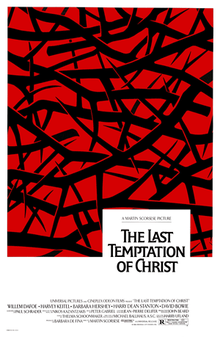



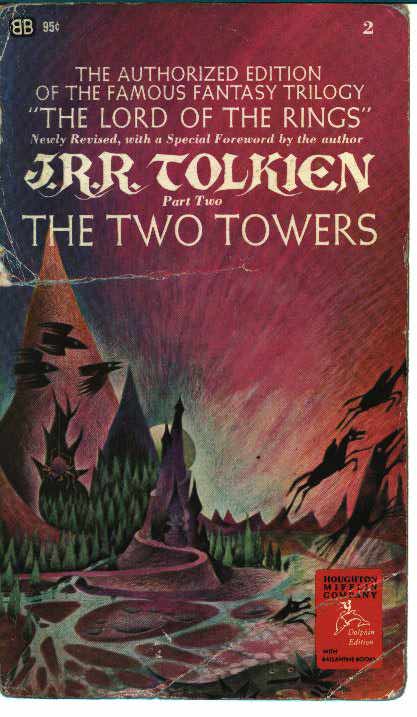






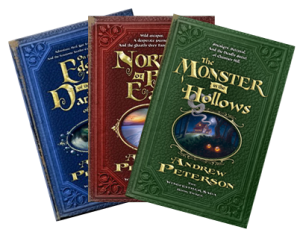



 While I may discuss more in the comments, here Iâll give no objection to that view. Rather, Iâm hauling out my raygun to train on the invading extraterrestrial characters from certain Christian novels (not all of them) who imply or even overtly babble alien dialogue like this:
While I may discuss more in the comments, here Iâll give no objection to that view. Rather, Iâm hauling out my raygun to train on the invading extraterrestrial characters from certain Christian novels (not all of them) who imply or even overtly babble alien dialogue like this:
